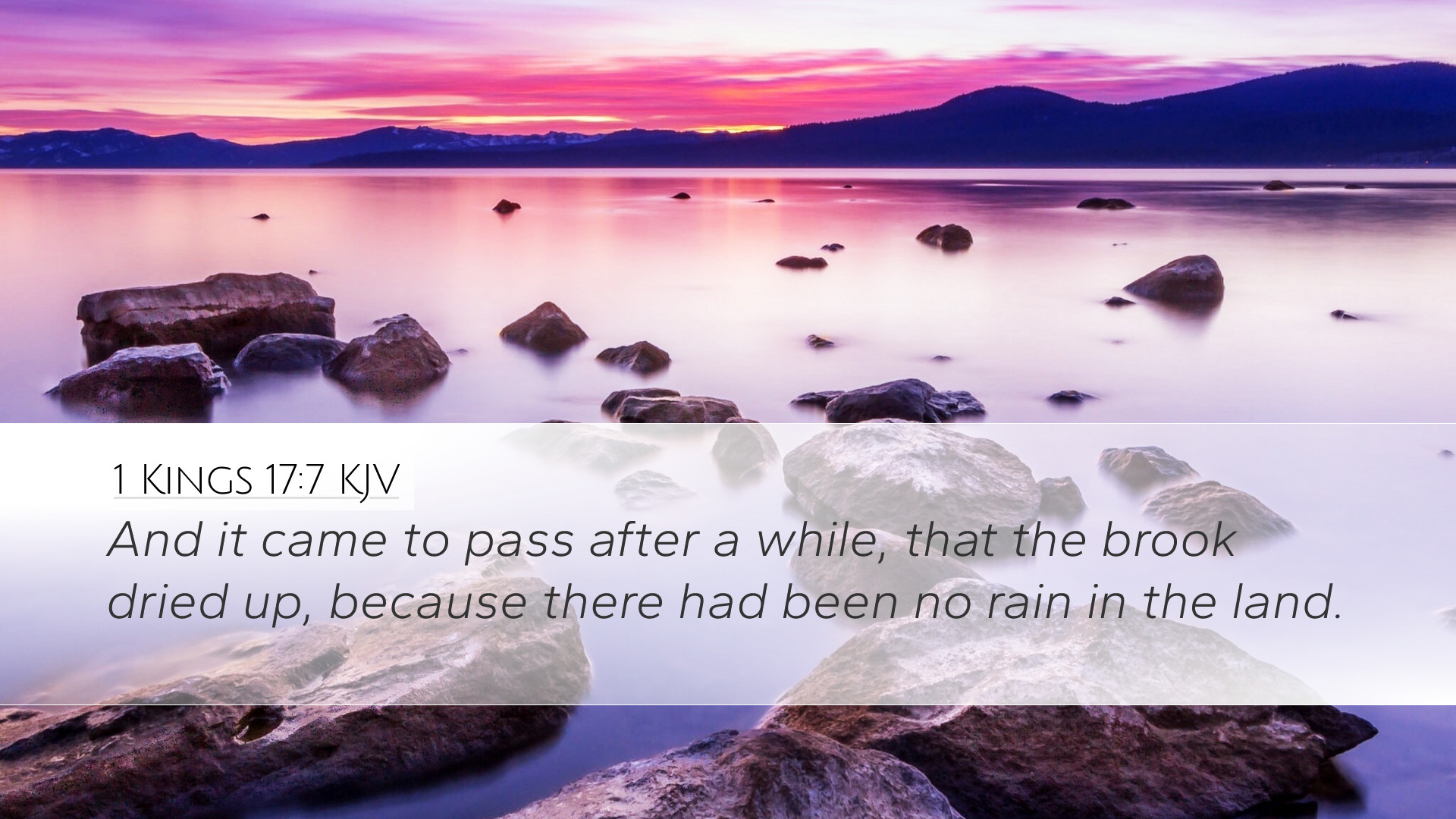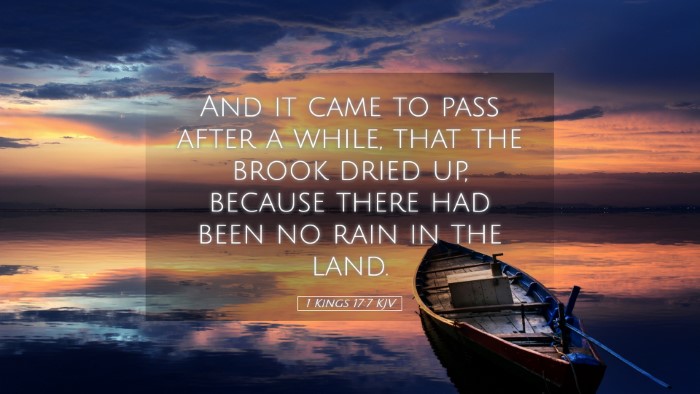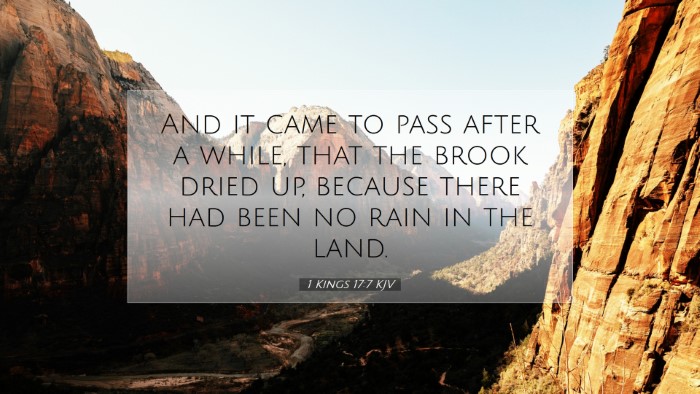Commentary on 1 Kings 17:7
Verse Reference: 1 Kings 17:7 - "And it came to pass after a while, that the brook dried up, because there had been no rain in the land."
Introduction
This verse occurs during a significant period in the life of the prophet Elijah, marked by the divine providence and miraculous sustenance God provided amidst a severe drought. The drying up of the brook not only serves as a turning point in Elijah's ministry but also illustrates key theological themes relevant to pastoral care, theological reflection, and practical Christian living.
Contextual Analysis
The historical context of this passage is crucial. The nation of Israel is under the rule of King Ahab, a monarch notorious for leading the people into idolatry, particularly through the worship of Baal. Elijah, as a prophet, is tasked with confronting this idolatrous regime, and God's provision of the brook underscores His sovereignty and faithfulness.
Literary Context
In the preceding chapters, God had commanded Elijah to prophesy a drought, and after this proclamation, the brook Cherith becomes Elijah's haven. This miraculous provision illustrates God’s care even amidst judgment. However, the transition illustrated in verse 7, where the brook dries up, prompts a theological reflection on dependency and obedience to divine directives.
Theological Insights
-
Divine Provision:
Elijah's experience at the brook Cherith symbolizes God's provision during times of crisis. The drying up of the brook signifies that God's provision may come to an end, illustrating that earthly resources can be temporary.
-
Testing of Faith:
Henry notes that the drying up of the brook serves as a test for Elijah's faith. It prompts a divine invitation to deeper trust and reliance on God. As believers, we often encounter situations where resources diminish; these moments can deepen our reliance on God's next provision.
-
God's Sovereign Timing:
Barnes emphasizes that God’s timing is providential. Just as God orchestrated the flow of water, so He governs the timing of all events in our lives. This truth can comfort believers, assuring them that no situation is beyond God’s control.
Practical Applications
As pastors and theologians reflect on this passage, several practical applications arise:
-
Embrace Change:
Acknowledge that God’s provision can lead us through different seasons. When one door closes, as with Elijah and the brook, God may be opening another door. This requires a willingness to respond to God’s leading.
-
Encourage Dependency on God:
Church leaders should teach congregants about the importance of depending on God for every need. Just as the Israelites had to trust in God for rain, so too must we trust in His provisions amid uncertainty.
-
Preparation for Transition:
It is vital to prepare congregants for transitions and to reaffirm God’s faithfulness throughout changes. Elijah’s next steps, as the narrative continues, lead him to Zarephath where God's provision continues, signifying new opportunities ahead.
Conclusion
1 Kings 17:7 serves as a poignant reminder of God’s sovereignty in our lives. The drying of the brook represents both an end and a new beginning, encouraging believers to trust in God’s unfailing provision. As we engage with this text, may we draw strength from Elijah’s story, understanding that even in our most challenging circumstances, God remains faithful, leading us into new dimensions of His grace.


